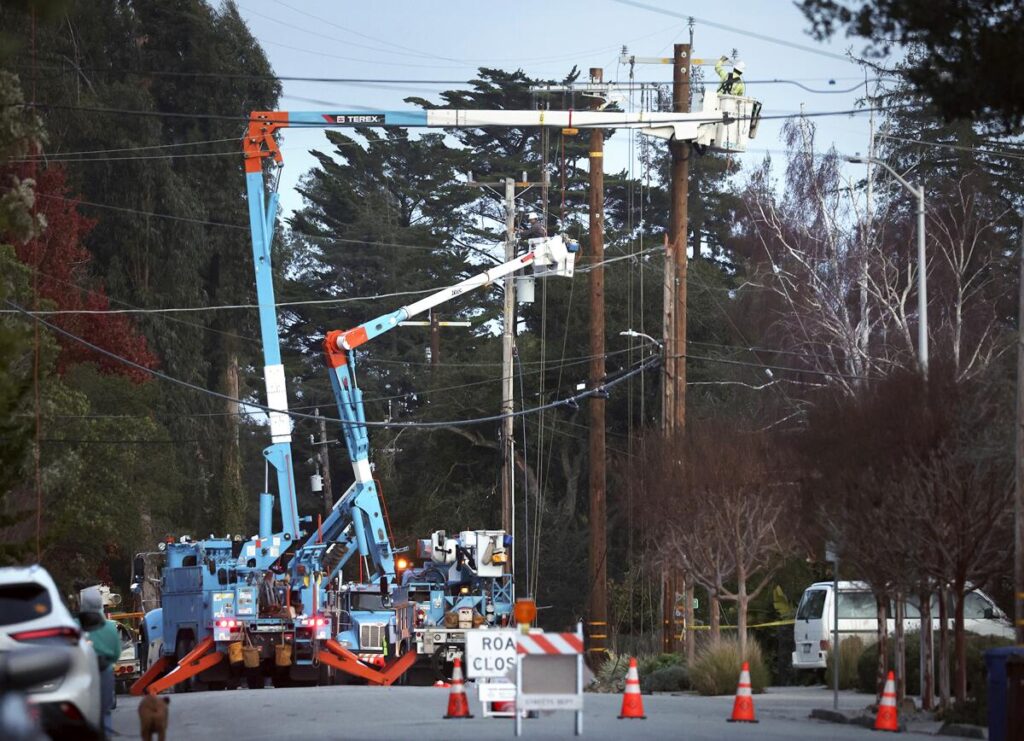Understanding the Cost of Grid Interruptions in Texas
By Ethan Miller and Mohammed Alkhabtib

In our ongoing commitment to strengthen Texas’s energy infrastructure, the Texas Solar Energy Society is proud to update our members on a crucial initiative. Spearheaded by our research team, we have embarked on a project to estimate the economic impact of grid service interruptions across the state due to the extreme weather events our state has been experiencing.
Last year, we projected that these interruptions could cost our state economy around $2 billion in 2023. However, we have refined our methods and adjusted our focus to 2022, in order to take advantage of the more comprehensive data available. This change allows us to provide a more accurate and actionable analysis as we advocate for necessary grid reforms.
The challenges of this analysis are manifold, particularly due to the diverse nature of Texas’ electricity providers. Our initial approach of using data from utility providers proved too complex due to their varied customer bases, ranging from noncompetitive municipal services to competitive retail providers. To overcome this, we shifted our focus to Transmission and Distribution Utilities (TDUs). These entities, regulated as natural monopolies, manage a unified network of electrical wires across Texas and are monitored by the Public Utility Commission of Texas (PUCT). This strategic pivot ensures our analysis covers the entire Texas grid, leveraging data from 68 recognized TDUs.
Another significant hurdle was choosing the right data sources to accurately capture the frequency and duration of power outages. The PUCT’s Annual Service Quality Reports provided some insights but were limited to private TDUs and lacked comprehensive customer data. Thus, we opted for the broader and more detailed EIA 861 dataset, which aligns with the standards set by the Institute of Electrical and Electronics Engineers for 2022. This decision has enhanced the reliability of our preliminary estimates.
To date, we have completed estimates for 24 out of the 68 TDUs, suggesting a potential cost of $68.6 billion in 2022 alone. We continue to seek IEEE-compliant data from other utilities and will update our findings accordingly.
The insights garnered from our detailed analysis not only quantify the financial impacts of grid interruptions but also illuminate the path forward for enhancing grid reliability. The Texas Solar Energy Society is committed to using this crucial data to advocate for comprehensive grid maintenance strategies that are not only responsive but also proactive. By presenting our findings to decision-makers, we aim to underline the economic necessity of investing in our grid infrastructure. This initiative will support the development of well-informed policies and funding allocations, ensuring that future grid interruptions are fewer and less severe. Our goal is to equip Texas with a robust and resilient energy system that can withstand the challenges of tomorrow, safeguarding our economy and enhancing the quality of life for all Texans.
As we proceed, your insights and inquiries are invaluable. For further information or to engage in this discussion, please contact Ethan Miller at ethan@txses.org, or Mohammad Alkhatib at mohammed@txses.org. Together, we can pave the way for more resilient energy solutions in Texas.
